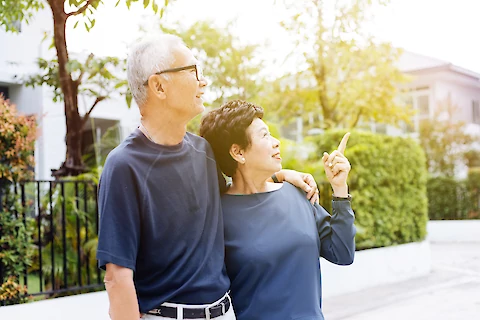
As we enjoy the warm sunshine and the great outdoors, it's important not to forget about sun safety, especially for our senior loved ones. Age-related factors and risks can make them more vulnerable to the harmful effects of sun exposure. By increasing your awareness of age-related sun dangers, you can better protect yourself or your senior loved one.
Aging Skin and Sun Damage
The aging process can make our skin more susceptible to sun damage in various ways. First, as we age, our skin becomes thinner, making it less resistant to the harmful effects of the sun. Second, seniors' skin tends to produce less natural oil, which can lead to dryness and an increased risk of sunburn. Finally, the loss of elasticity in older skin makes it more prone to wrinkles and other cosmetic issues caused by sun exposure.
Moreover, the increased risk of developing skin cancer as we age is a significant concern. This risk arises from cumulative sun exposure over a lifetime and the decreased ability of our bodies to repair damaged cells. It is essential to be aware of these risks and take appropriate measures to protect our skin from potential harm.
Medications and Sun Sensitivity
It's not just the aging process that increases sun sensitivity; certain medications can also play a role. Common medications such as antibiotics, diuretics, antihistamines, and blood pressure medications can make your skin more sensitive to the sun's rays. When starting any new medication, discussing with your healthcare provider whether it may increase your sun sensitivity and adjusting your sun protection habits accordingly is crucial. This may increase in importance when providing care for your senior loved ones.
Practical Tips for Sun Safety
While it's essential to be aware of the risks associated with sun exposure, seniors can still enjoy outdoor activities by taking the following precautions to protect their skin.
1. Apply a High SPF Value Sunscreen
Choose a broad-spectrum sunscreen with an SPF of at least 30 to protect against both UVA and UVB rays. Apply it generously and frequently, especially after swimming or sweating.
2. Wear Protective Clothing and Accessories
Opt for long-sleeved shirts, pants, wide-brimmed hats, and sunglasses with UV protection to shield your skin or your senior loved one's from direct sunlight. Light and breathable fabrics can help keep you cool during hot summer days.
3. Seek Shade When Possible
Whether you are relaxing at the park or attending an outdoor event, try to find a shaded area or use umbrellas and shade structures to protect yourself and your group from the sun. Choosing outdoor activities in shaded areas, like walking under tree-lined streets or visiting a botanical garden, can also help minimize sun exposure.
4. Be Mindful of Peak UV Hours
The sun's UV rays are typically strongest between 10 a.m. and 4 p.m. To minimize your risk, plan your outdoor activities for earlier or later in the day, and make sure to check local UV index forecasts to stay informed about daily conditions.
Sun safety is crucial for seniors due to age-related factors and the increased risk of developing skin cancer. By taking practical steps to protect their skin, seniors can still enjoy the benefits of outdoor activities and maintain their overall well-being.
Get In-Home Care in the Dallas Area
For those living in Dallas, Garland, Mesquite, Rowlett, and Balch Springs, Senior Helpers East Dallas is here to assist with a range of services, including outdoor activities and sun safety measures. Contact us today to learn more about our companionship and in-home care services and how they can benefit you or a senior loved one.